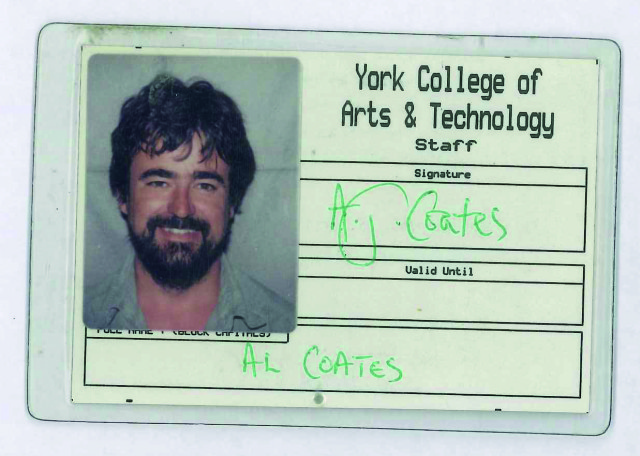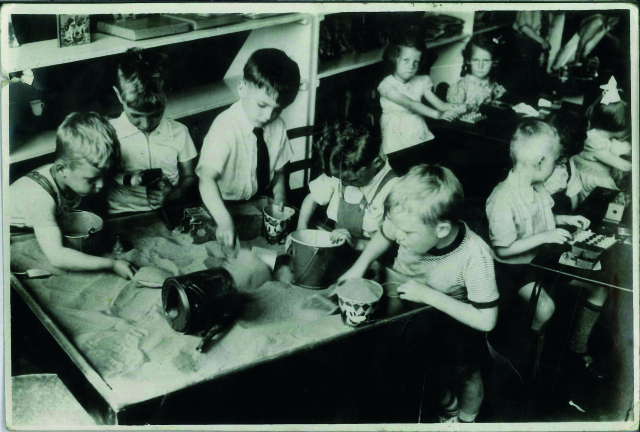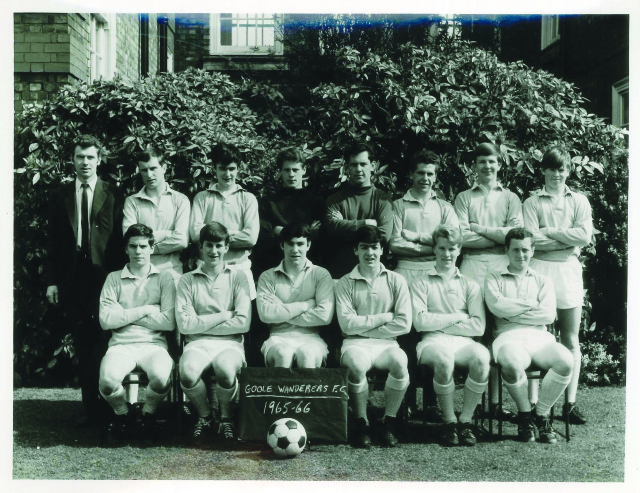Download our free 24 page supplement to find out who the winners were, which providers topped the league tables, who has made it through to Squad UK and more…
Movers and shakers: edition 156
Barnsley College governors have seen big changes among their senior memberships and staff.
Simon Perryman takes the position of chair from Josie Thirkell, who steps down after three-and-a-half years in the role.
Paul Jagger MBE and Ben Mansford also join the board, with Mr Jagger taking up the position of vice chair.
New chair Mr Perryman runs Perryman, Yeandle and Associates, a skills and industrial strategy business, and is a member of the Sheffield City Region Skills board.
He was previously executive director of the UK Commission for Employment and Skills and director of performance at the Sector Skills Development Agency.
Mr Perryman said: “I am delighted to have been appointed as chair of governors and have been hugely impressed by everything I have seen at the college. The fact that the college is rated outstanding is down to everyone who studies, teaches, manages and supports its excellent work.
“I am confident that with strong leadership and governance the college is very well placed to manage any challenges that lie ahead. I am determined we will continue to do our very best for the people of Barnsley and the surrounding area.”
Ms Thirkell leaves the college board after eight years, in which she also served as vice chair.
“Throughout all of my time as a governor, vice chair and chair of Barnsley College, it has been my privilege to work alongside a very dedicated and highly skilled staff team and a dynamic and professional group of governors,” she said.
“The college has brought a visible difference to Barnsley town centre during this time.”
New vice chair Mr Jagger is chair of Ucas, recently became a member of the Association of Colleges’ regional board and is president of Barnsley and Rotherham Chamber of Commerce.
He said: “Having worked around the further and higher education sectors for many years, I am pleased to have become vice chair of the college’s board of governors.
“The college is a key player is delivering high quality education within Barnsley and I look forward to being part of that process.”
Mr Mansford is chief executive of Barnsley Football Club and has a varied legal background.
He said he would bring “energy and enthusiasm to the board along with my personal experiences of FE and higher education”.
“The success of younger people and everyone seeking to learn new skills is paramount to the growth of Barnsley and the surrounding areas,” he said.
“I will seek to do all I can to drive the college forward over the coming years.”
Barnsley College principal Chris Webb, who himself took up post in September, as previously reported by FE Week, said: “Their backgrounds and skill sets complement those of our existing board members who are all fully committed to supporting the senior management team and taking the college forward to the next level.”
Sixth form colleges’ academy VAT pass announcement comes as perfect leaving present
David Igoe will stand down as chief executive of the Sixth Form Colleges’ Association (SFCA) at the end of March. He told FE Week why he views Chancellor George Osborne’s decision to allow SFCs to become academies and gain VAT exemptions as the perfect leaving present.
It was really good news that Chancellor George Osborne announced on Wednesday (November 25) that Sixth Form Colleges will be able to apply to become Academies and gain the VAT exemption.
It is the culmination of a long campaign by the SFCA to persuade Ministers and the Treasury to give SFCs that option and end the anomaly of the VAT inequality.
These concessions were also on my personal wish list to achieve before I hang up my boots at the end of March 2016
Almost better news was the announcement that the rate would be protected for the life of this parliament and colleges could plan their futures without the spectre of further rate cuts hanging over them.
Given the limitations of the options open to the Department for Education, which will still have to find other savings, this is a significant victory for our campaign to expose the funding dip at key stage five (16-19) and the relative imbalance of funding across the phases.
Both decisions are a victory for the young people we educate, who can now have some prospect of a continuation of the excellent education SFCs provide.
If the Chancellor wanted to give us a Christmas present then he succeeded.
These concessions were also on my personal wish list to achieve before I hang up my boots at the end of March 2016.
I began my career in SFCs when we were a thriving segment of the schools system.
Incorporation in 1993 forced us into the FE world, but in recent months we have been campaigning for our sector to be both schools facing and, where sensible, to return to be an integral part of the schools provision in an area.
Becoming Academies is the start of that reality.
It is game-changing for area reviews which must now see SFCs, as not just another bit of the FE world, but as an integral part of multi-Academy trusts and the school/Academy system.
I think we have come home.
Young artist’s icons on show
A young artist’s painting of Nottingham’s best-known icons will be put on show at Nottingham City Council.
Internationally-renowned designer Paul Smith and literary greats DH Lawrence, Lord Byron and Alan Sillitoe all feature in 18-year-old Soniya Ahmed’s striking portrait, as well as Albert Ball, the First World War fighter pilot.
Soniya is studying a BTec extended diploma in art & design at Central College Nottingham.
Her painting was commended in the visual arts category of the Young Creative Awards earlier this year, and that is when her work was spotted by the council.
Soniya said: “I entered the awards as part of a college project and wanted to use some famous subjects, but also bring back to life those that maybe not everyone knows about.
“My previous college bought a piece of my artwork, but this is the first time that I’ve sold a piece of my artwork outside of college, so I’m really excited.
“It feels like I’m getting closer to my dream of becoming a famous artist.”
Pic: From left: Nigel Cooke, director of One Nottingham which organises the Young Creative Awards, with Soniya Ahmed and Mandi Chandler, curriculum manager for art & Design at Central College Nottingham
Will 19+ learners buy in to Chancellor George Osborne’s FE loans extension?
Chancellor George Osborne’s extension of the FE loans system from those aged 24 and above to the 19 to 23 age group was a source of uncertainty for government officials — but Mike Farmer explains how he sees it working out.
What do we already know about FE loans? The key message is that the budget is currently grossly (62 per cent) underspent.
I calculate that the scheme could take 125,000 more students receiving loans (at £2,000 a time) without exceeding the £400m allocated to it.
It’s unsurprising that the Chancellor has brought 19 to 23-year-olds into scope. My guess is this will happen next academic year
The scheme is tightly controlled by the Skills Funding Agency (SFA) which caps the fees for every single level three and four qualification. So plenty of scope to expand and modify the scheme without Chancellor George Osborne getting worried.
So where next? It’s unsurprising that the Chancellor has brought 19 to 23-year-olds into scope. My guess is this will happen next academic year. The funds are there and all the systems are in place. I’m also fairly optimistic about the impact on student participation.
Based on the November Statistical First Release I calculate that there are 65,000 to 70,000 19 to 23s (other than apprentices) taking level three and four qualifications. The evidence suggests that younger students are less loan-averse than older students, so a fairly high proportion of 19 to 23s are likely to take out loans.
There are bigger uncertainties around the proposed extension to higher levels. How many level five and six students there will be is much more speculative, and depends on a number of factors, including the speed with which the new National Colleges and Institutes of Technology get off the ground, and the qualifications that they (or awarding bodies) can develop.
There are questions too about where these additional students will come from. Clearly there will be competition with universities and other conventional higher education providers.
That is probably the reason for introducing FE maintenance loans for students of higher level skills, and a planned increase in the FE loans budget.
A gradual integration of the FE and higher education loans schemes looks on the cards and this can only be for the best. The FE scheme has suffered from inadequate publicity, and having a single scheme will help in this respect.
Also needed is a relaxation of the iron grip that the SFA has on FE loans. For example, although this would not be popular, a lifting of fees cap which it currently sets.
Since the Department for Business, Innovation and Skills has to cut 17 per cent of its administration costs, there are questions about whether the SFA will have the capacity to exercise its current control, or even whether it will survive to do it.
Good news in Budget — but what does it mean for learners?
Sandra McNally considers the possible impact of Chancellor George Osborne’s November 25 Budget.
The Spending Review has brought good news to FE (at least relative to expectations).
Highlights include a commitment to protect the budget for 16 to 19-year-olds in cash terms; an apprenticeship levy on large employers, with a commitment to spend £2.5bn in England by 2020; increased availability of loans for individuals who want to pursue higher levels of vocational education.
FE leaders must be breathing a sigh of relief. However, what matters to the economy is not how particular institutions fare but what all this means for potential learners. Let’s look at funding for 16 to 19-year-olds and apprenticeships.
Research tells us that the level of expenditure matters for outcomes (other things equal). Therefore a cut of expenditure in real terms has potential negative consequences for learner outcomes (although much depends on how this is managed). Furthermore, there is not a level playing field for post-16 provision.
For the same course offerings (for example A-levels), students are probably better resourced in schools than in FE colleges because schools can cross-subsidise their sixth form students from their overall budget (much of which is protected in real terms).
What matters to the economy is not how particular institutions fare but what all this means for potential learners
Also, arguably FE colleges have a tougher task with regard to post-16 provision because an increasing amount of this is remedial, given that learners have to achieve minimum standards in English and maths.
Those who have struggled up to the age of 16 with these subjects are not necessarily easy to teach. The extent to which actual resources per student differs across institutions also matters for the social mobility agenda: a higher share of post-16 learners pursuing non A-level options come from disadvantaged backgrounds.
The increased availability of apprenticeships will benefit young learners provided they are in a position to access them and provided they are of high quality (and seen to be such by whole groups of employers).
In the last few years, we have seen a dramatic increase in apprenticeship numbers, but many of them have been older workers (and a very low percentage have been under 18 years of age).
Presumably, employers are not incentivised to recruit young people that are not in some sense ‘work ready’, finding it easier to train more experienced workers. If apprenticeships are to become a more central part of the gateway to employment for young people, then the pre-apprenticeship phase of education cannot be underestimated. Part of this involves clearer progression pathways for young people.
While the availability of extra funding for apprenticeships is laudable, the efficacy depends on how this is used. The Chancellor has acknowledged concerns about quality and another announcement refers to a new employer-led body which will have an important role in the administration of the new system.
In addition to quality, a major issue is the extent to which additional funds stimulates additional investment in training (as opposed to a shift in training budgets). If we want to stimulate additional investment by employers, we need to understand better why some employers choose not to employ apprentices (or indeed choose not to invest in much formal training at all) — and why others do.
For example, large employers might be very confident that they will re-coup training costs because of high staff retention post-training. They might also have the facilities for high-level on-site mentoring.
The obstacles might be greater for small employers or those in highly competitive labour markets (where poaching of trained staff is a real issue). Thus, the nature and level of government support might need to differ across types of employers.
The success of the policy will depend on getting the detail right. It should be judged by its effect on workers and productivity — and not by whether or not a numerical target is achieved.
Funding threat hangs over providers who missed topslice declaration deadline
The Skills Funding Agency was today looking into whether it would suspend funding for lead providers who flouted a disclosure deadline as part of a topslicing clampdown.
It said it was “undertaking compliance work” to determine whether any providers had ignored a ruling that all their management fees be published online by Monday (November 23).
The SFA warned in September that funding could be suspended where declarations were missing after the deadline — and FE Week checks on the websites of a number of leads with numerous subcontractors found apparent offenders.
Among those to have missed the deadline was North Hertfordshire College, which uploaded its fees a day late, while City of Bristol College was two days over.
An SFA spokesperson told FE Week that it was “undertaking compliance work to ensure that every lead provider that has been ‘provision subcontracting’ has adhered to our supply-chain fees and charges funding rules”.
“If this work identifies that a lead provider has not adhered to these rules, we will take action,” she added.
“We will not be disclosing information on individual providers until our compliance work is complete, which will be by the end of the calendar year.”
The SFA wants information on management fees available on websites, and to include current supply chain fees and charges policy.
It also wants the relevant weblinks provided on 2015 to 2016 subcontractor declaration forms.
It comes around nine months after an FE Week investigation found that providers were ignoring rules that they must publish what they charge subcontractors. And while there was compliance with rules on listing the range of fees, these were as high as 40 per cent in some instances.
But compliance with the website declaration rule has also brought its own shocks.
Figures published by the country’s biggest SFA contractor and former publicly-owned provider Learndirect, which hit the deadline, showed that it top-sliced almost £50m from deals with its subcontractors in the last two years.
The figures showed that the Sheffield-based provider retained 31 per cent (£24.3m) of total funding (£77.7m) for its 73 subcontractors in 2013/14.
But management fee details on its website showed that last academic year it retained an even higher proportion — 36 per cent of total funding (£68.1m) from 75 subcontractors.
Despite being allocated £9.5m less total funding last year than in 2013/14, it maintained a £24m topslice by increasing the average management fee from 31 per cent in 2013/14 to 36 per cent last year when it earned £24.2m in management fees.
A Learndirect spokesperson told FE Week: “The level of charges depends on the contract being delivered and the role of the supplier in question.
“Partners have schedules outlining the fees payable to them for their role in the delivery of each contract, and these rates are published to them prior to contracting.”
The 36 per cent 2014/15 topslicing figure for Learndirect is uncomfortably close to the 40 per cent SFA chief executive Peter Lauener (pictured above) has said he would find unjustifiable.
Mr Lauener told FE Week editor Chris Henwood in an exclusive interview last year that he “would find it quite hard to see a set of arrangements that would justify a 40 per cent management fee, because it’s kind of obvious that what is taken as a management fee is not going to frontline education or training”.
The SFA rule requiring providers to specify how much they charge subcontractors in management fees was first introduced in August last year.
A notable offender was Learndirect — although the firm subsequently uploaded its 2013/14 figures before Christmas.
The rules following a long campaign against excessive top slicing by FE Week that was launched in the paper’s pilot edition in June 2011.
An SFA spokesperson said at the time that “all colleges and other training organisations which subcontract must publish the actual funding paid and retained for each of their subcontractors in the [provider] funding years 2013 to 2014 and 2014 to 2015”.
Employer engagement hopes with £3bn levy
Sector leaders have reacted positively after Chancellor George Osborne fleshed out how the new apprenticeship levy on large firms would raise £3bn a-year.
Mr Osborne confirmed that from April 2017 employers would have to pay 0.5 per cent of their pay roll costs towards the levy — offset by a £15,000 allowance meaning that most employers would not have to pay.
“I am setting the rate at 0.5 per cent of an employer’s paybill. Every employer will receive a £15,000 allowance to offset against the levy — which means over 98 per cent of all employers — and all businesses with paybills of less than £3m, will pay no levy at all.”
The levy, due to be introduced in April 2017, will fund £900m of apprenticeship spending and comes with a new employer-led Institute for Apprenticeships, which will set standards and quality and be fully operational in time for the levy launch, according to a Department for Business, Innovation and Skills spokesperson.

Stewart Segal (pictured right), Association of Employment and Learning Providers chief executive, said “large employers will be encouraged to increase their apprenticeship programmes to make the most of their levy fee.”
“The levy will also apply to more businesses than we expected,” he added.

John Allan (pictured left), national chairman for the Federation of Small Businesses, said: “We support the decision to use payroll as a measure to determine which businesses pay the levy, as opposed to headcount. It recognises that not all businesses will be able to afford to pay.”
Confederation of British Industry director general Carolyn Fairbairn (main picture above) said the levy would be a “significant extra payroll tax on business”.
However, she added: “We welcome the creation of a levy board to give business a voice on how the money is spent.”
The government response to its levy consultation came out the same day as the Budget and addressed the issue of existing levies operated by the Construction Industry Training Board (CITB) and Engineering Construction Industry Training Board (ECITB).
“We understand employers in sectors where a levy is already in place want clarity,” it said.
“We are working with the relevant industry training boards to consult with their members ahead of the introduction of the levy on how existing arrangements will be affected and whether any changes are required.”
Chris Claydon (pictured right), ECITB chief executive, said: “There is still a great deal more detail our members require on how the sector will operate with two levies.”
Steve Radley, director of policy at CITB, said his organisation had asked members “whether the existing levies are still needed and employers will be prepared to pay them” and “most answered yes on both counts”.
Click here for an expert piece by Mr Radley covering the Budget’s levy announcements.
Al Coates, business development manager, Tribal Group
With retirement beckoning, it’s a time of reflection for Tribal business development manager Al Coates.
But despite 41 colourful years in FE, the humble grandfather-of-two was a difficult subject to tie down for a profile interview.
York-based Coates had been unsure whether his story was an interesting one, before others — not least his equally personable Tribal colleague Sandra Furby, director of learning and development, specialist learning solutions — persuaded him otherwise.

College of Arts and Technology
And, with the first hour of his interview passing in the blink of an eye as the anecdotes come thick and fast (and, unhelpfully, not in any particular chronological order), it’s clear those colleagues were right as the hours then ticked by with 67-year-old Coates holding court.
‘You can call me Al,’ had been his earlier warm introduction, and something anyone who has met Coates will most likely also have heard.
He was born in Leeds in 1948 and grew up in the dockland town of Goole in Yorkshire, where he left the local grammar school in 1966 with a handful of O-levels and two A-levels.
“Doing A-levels meant I avoided having to stay in Goole and do what everyone who went to the secondary modern school did, which was to work on the docks,” recalls Coates.
“Which wasn’t a bad thing to do, but it would have taken me in a very different direction in life than the one I went.”
After finishing his studies, an 18-year-old Coates had to decide what career path to follow.
He laughs and says: “I think the school PE teacher was the careers adviser in his spare time to fill his timetable — so careers guidance was poor.”
Coates chose to study business at Hatfield Polytechnic (now the University of Hertfordshire) and then as he says “drifted into accountancy for being good with numbers”.
He then made the bold decision to walk out on accountancy as he thought he might be better off helping others learn.
Coates explains that some of his friends who went to the local secondary modern school struggled with their exams and he saw this as the motivation to get involved in teaching.

He smiles as he remembers how he “walked into Hertfordshire Education Authority in 1973 and asked to do some work for them”.
“They said: ‘You can’t go into a secondary school because you’re not qualified, but you can go into a junior school’,” says Coates.
So he secured a job as a year six teacher at Wormley Junior School where he taught for several months.
“That’s where I met Ray Davies of The Kinks, because his two kids went there — and it kind of became quite a nice story to tell people.”
It was an enjoyable initiation into the world of delivering education, but the possibilities of FE were clear to Coates even then.
“I’d never been involved personally in FE, but it was where I thought my idea of being able to contribute in terms of widening participation and opening up opportunities for people would be,” he says.
Coates studied for his PGCE in his midtwenties and went on to work in a secondary modern in York working with todays ‘Neets’ (young people not in education, employment or training).
“Getting into FE wasn’t easy, and the way I had chosen to get into it was through teaching in a secondary school and for the city council,” explains Coates.
Who then worked for York Council’s Job Creation Scheme for young people out of work where he taught maths and English.
“My priority was to enable people to try to develop their confidence — because lots of people can do things if their confidence is right,” he says.

learning and development, Coates and Lady
Helena Kennedy, president of the Helena
Kennedy Foundation which this month gave
the Tribal duo Ambassador’s Awards for
special service to FE
“So I had that kind of liberalist approach to things, but I had a strong side to me as well as you’ve got to put your foot down occasionally.”
And he winces with recollection of a time when his “strong side” didn’t quite work out as he had hoped and 27 students walked out of his classroom in the middle of a lesson.
“So the second week when I turned up I thought: ‘I’ve got to change this behaviour’,” he says.
“I actually put my chair under the door and sat there, effectively locking them in — and I was silly enough to think that that gave me control.
“Probably less than 20 minutes later, about three students disappeared out of a window, down a drainpipe from the first floor.
“I rushed across to the window, so they threw the door open and the rest of them disappeared through the door.”
A funny anecdote from a bygone era it may be, but it also proved a tough lesson for Coates, whose next role was as a liberal and general studies teacher at York College in 1974.
“Liberal studies had a set national philosophy, which was to ‘broaden the horizons’ of young people who otherwise aren’t getting any broadening in their educational experience,” explains Coates.
“So I taught apprentices on day release and this is where probably some of the most challenging work of my working life came in.”
The challenge was getting the apprentices engaged with liberal studies when enthusiasm was in short supply.
“I had gone in with a reputation, and the boss decided that: ‘This guy from Goole can deal with the most difficult blokes’, and I’m afraid I got lumbered with the ‘ability’ to do that,” says Coates.
He taught day release apprentices general studies on a Friday of all days, from 7pm until 9pm of all times — which he says was not an easy task.
“The truth is, they didn’t want to do it, and you really needed to try and be as imaginative and as responsive as you possibly could,” says Coates.
“We didn’t always win, but we did win on occasions, and it was quite rewarding.”

as a student in 1968
He also taught some of the morning groups, and is open about going to the pub with them at lunch time if they showed progress.
“You wouldn’t be able to do this now,” he says and even recalls a student climbing up a wall to join Coates’s first floor classroom so he could have a general studies lesson and join the pub group.
Coates adds: “With nearly everything I’ve ever done, it has been in the main hands on.
“And I don’t say that people should be like that but I am quite proud of that, and it worked for me.” During his time at the college, he also taught general studies, GCSEs and A-levels to adults and became head of health and social care.
He says: “For about a year before I left York College, I’d set up distance learning in health and social care for the first time in the college, and it proved to be pretty popular.”
Coates left the college at the age of 53 having decided to work with an ex-colleague on distance learning courses as part of Tribal Learning and Publishing in 2002 where he became managing director of its publishing division.
He remembers “one or two organisations doing distance learning in popular areas” like health and safety, but he wanted to do health and social care courses as well.
And during his time at Tribal, the number of distance learning courses has grown from just two to 60, covering a range of subjects from business and admin to hair and beauty.
But at some, as yet undecided, point in the new year Coates will be retiring to, he says, spend more time with his grandchildren, watching Yorkshire play cricket and visiting other sporting venues.
“In the last 14 years with Tribal I have had the great pleasure and privilege to have worked with over 150 colleges, numerous training providers, awarding bodies and other partners in the sector

and have always been welcomed,” he says.
“Tribal has given me the opportunity to work with an amazing team at York and to create a very successful business — I will always be grateful to Tribal for supporting me.”
It’s a personal thing
What’s your favourite book and why?
One Flew Over the Cuckoo’s Nest, because it is about authority verses free spirit. I used to show it in my old liberal studies classes
What do you do to switch off from work?
I like to spend time with my grandkids, Edie, aged three, and Mara who is just a year old. I also like to drink wine and watch sports — but not all at the same time
What’s your biggest pet hate?
Unnecessary bureaucracy and political correctness to an excess
If you could invite anyone to a dinner party, living or dead, who would it be?

Edie, three
I would have a sports dinner with former English test cricketer Ian Botham, champion jockey Frankie Dettori and former Leeds United player Norman Hunter
What did you want to be when you were growing up?
I wanted to be a footballer or a cricketer, but I had to revise that choice early on. I then became reliant on the PE teacher’s careers advice
